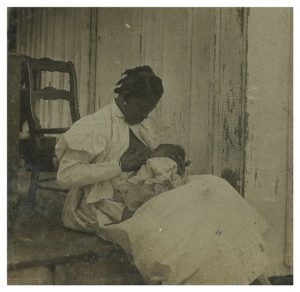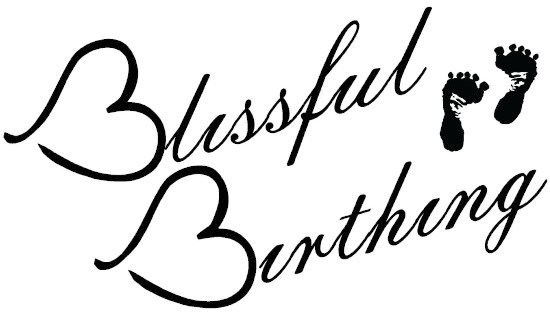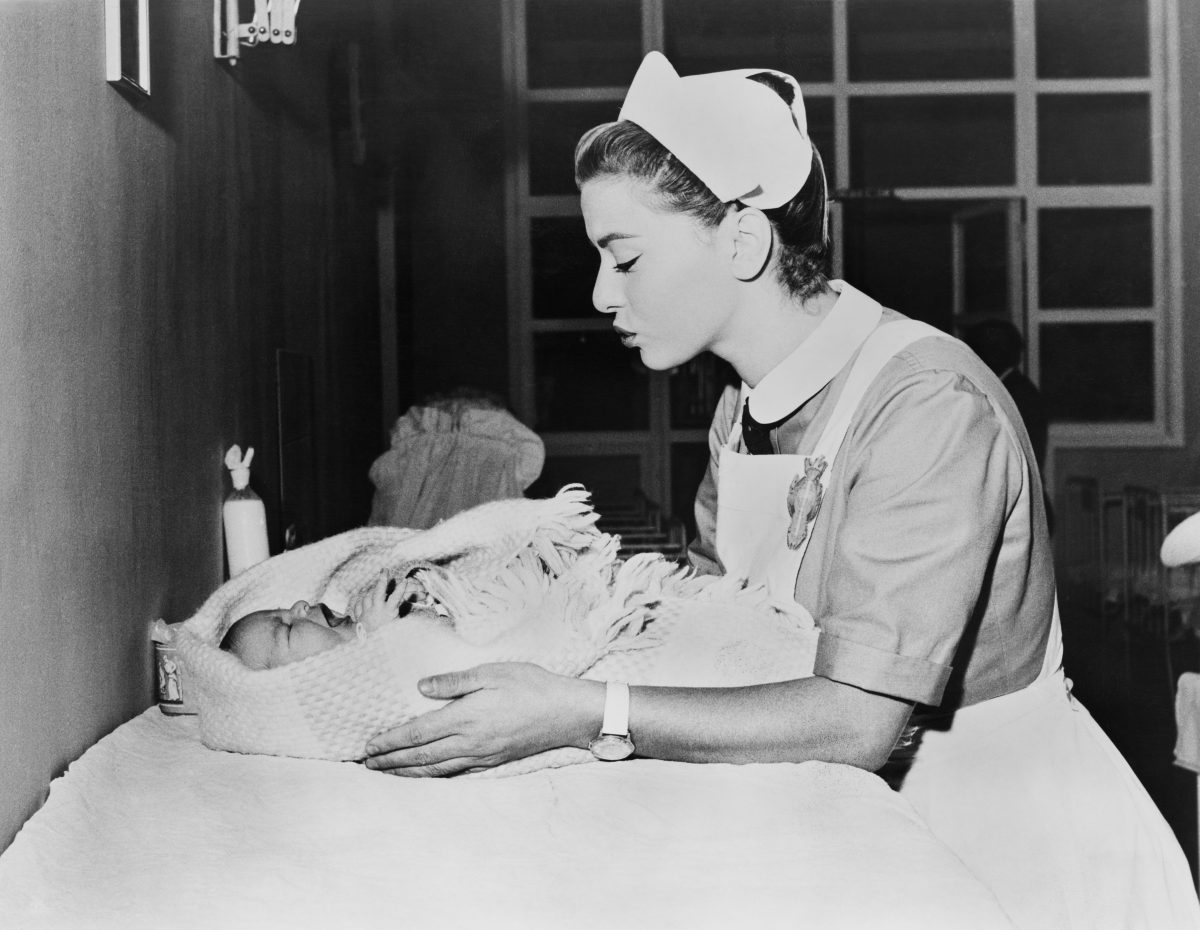We often see on Facebook requests asking for a “baby nurse”. This term can have different meanings to different posters. Are they looking for help after their baby is born? A registered nurse to help with the care of a medically fragile baby? Inexpensive care for their newborn? We appreciate being tagged in these posts but are very uneasy with the term “baby nurse”. Blissful Birthing’s doulas have a great deal of respect and appreciation for nurses, but that is not what we are. Not only would it be misleading to refer to any of my team members as a ‘baby nurse’, but it is also illegal* to refer to yourself as a nurse when you do not have the proper credentials. The term baby nurse also has an ugly and oppressive history that we do not wish to perpetuate.
What is a baby nurse?
A baby nurse (or neonatal nurse) must be a licensed practical nurse (LPN) or a registered nurse (RN). These individuals have graduated from 2 or 4 year accredited degree programs, respectively. They are certified in Neonatal Resuscitation and/or Neonatal Intensive Care Nursing**. In our time in this industry we have met exactly one nurse who also works as a live-in postpartum doula in our area.
What we see most often when someone is looking for a “baby nurse” is the want for someone to care for their baby. These individuals typically take over the care of the baby and are not well-versed in breastfeeding. Often, they are poorly paid women of color or immigrants.
What we have found most new parents are looking for is a non-medical professional to help them learn how to care for their baby (either live-in or just for the day/night). This support will also afford you time to bond with your new baby, your older children, or rest while the caregiver is there. This role is either filled by a Newborn Care Specialist or a Postpartum Doula.
| “A Newborn Care Specialist is an individual trained and skilled in newborn care. She provides unique expertise in all aspects of newborn care, parental education and support. Her job is to help nurture and care for newborns while providing guidance and education for the parents.” | “A certified postpartum doula provides guidance to new parents on important subjects like infant feeding, emotional and physical recovery from birth, mother & baby bonding, infant soothing, and basic newborn care.” |
The Ugly History of Baby Nurses
 “Baby nurse” is a term that evolved from “wet nurse” as breastfeeding used to be the primary duty of these women. These terms are deeply rooted in sexism, classism, racism, and the commodification of black women.
“Baby nurse” is a term that evolved from “wet nurse” as breastfeeding used to be the primary duty of these women. These terms are deeply rooted in sexism, classism, racism, and the commodification of black women.
Sexism
Historically, it was not uncommon for men to want to prevent their wives from ruining “their maidenly bosoms” which, in their minds, could be accomplished by not breastfeeding. Other reasons why women would abstain from breastfeeding included:
- It took time and attention away from their husbands.
- Lactational amenorrhea impacted fertility so women who were breastfeeding could not bear as many babies.
- Shaming. There is a long history of “you’re not a good enough mother if you breastfeed” (because then you’re neglecting your wifely duties) which switched to not being a good enough mother if you didn’t breastfeed (as hiring a baby nurse/wet nurse became a status symbol).
Classism & Racism
In the 1800s women hired wet nurses because they weren’t going to breast feed (see the reasons above) and they wanted to avoid feeding their babies “artificial food”. At this time alternatives to breast milk were not nutritionally balanced or safe for babies. These alternatives led to diarrhea, malnourishment, and death of many babies.
So what was a woman to do? Hire a wet nurse, of course. In 18th century France to 90% of babies were wet nursed! Hiring a wet/baby nurse was definitely seen as a social status indicator and there were strata within this system. The wealthy had their “nurse” come live with them. It is understandable that if you are hiring someone to breastfeed your baby you wouldn’t want them to also be feeding their baby. So the wet nurses would leave their babies with a caretaker (either an even poorer wet nurse or a family member) who would feed the baby an inadequate breast milk substitute. Their babies would consume the same substances their employers wanted to avoid for their own babies. Enter “baby farms”. These women would take in multiple babies to feed/care for. This practice led to high infant mortality – up to 90%!
The Commodification of Black Women
As any woman who has breastfed her child will tell you – breastfeeding is work! This was also true in the antebellum south. Instead of hiring a wet nurse, it was not uncommon for a slave owner to have one of her slaves do that work for her. While this may seem like a job that helped to bridge the racial disparities of the time, it was far from that. Working as a baby nurse was, at this time, a paid profession. Pregnancy of an enslaved woman was an inconvenience for the slave owner. So how was this reconciled? The slave owners manipulated the ‘inconvenient’ pregnancy of their slaves to their own benefit – to feed their baby. As for the baby of the wet nurse, another lactating slave would usually take over feeding that baby.
Words DO Matter
Our postpartum doulas love helping new families learn to care for their new babies. We are proud to be doulas! But we are not nurses. We have the utmost respect for nurses and ask that if you do use the term “baby nurse” it be reserved for those who have a nursing degree.
You May Also Like
Remember Your Nurses!
Postpartum Plan – What it is and Why You Need One
Sleep: The Best Gift You Can Give a New Mom
References/Additional Reading
*(2006) Section 6903 of Title VIII Education Law as amended by Chapter 994 of the laws of 1971, and renumbered by Chapter 50 of the laws of 1972 is amended to read as follows:
6903 No person shall use the title “nurse” or any other title or abbreviation that would represent to the public that a person is authorized to practice nursing unless the person is licensed or otherwise authorized under this article.
**How to Become a Neonatal Nurse Specialist or Nurse Practitioner
A History of Breastfeeding and Wet Nurses
The Lifesaving, Horrifying History of Wet Nurses
Sweet and Clean: A Glance at the History of Infant Feeding
Desperate Women, Desperate Doctors and the Surprising History Behind the Breastfeeding Debate
A Brief (and Fascinating) History of Breastfeeding and its Alternatives
Wet Nurse
Wet Nurse
What is a wetnurse? History of Wetnursing
Mother’s Milk: Slavery, Wet-Nursing, and Black and White Women in the Antebellum South

